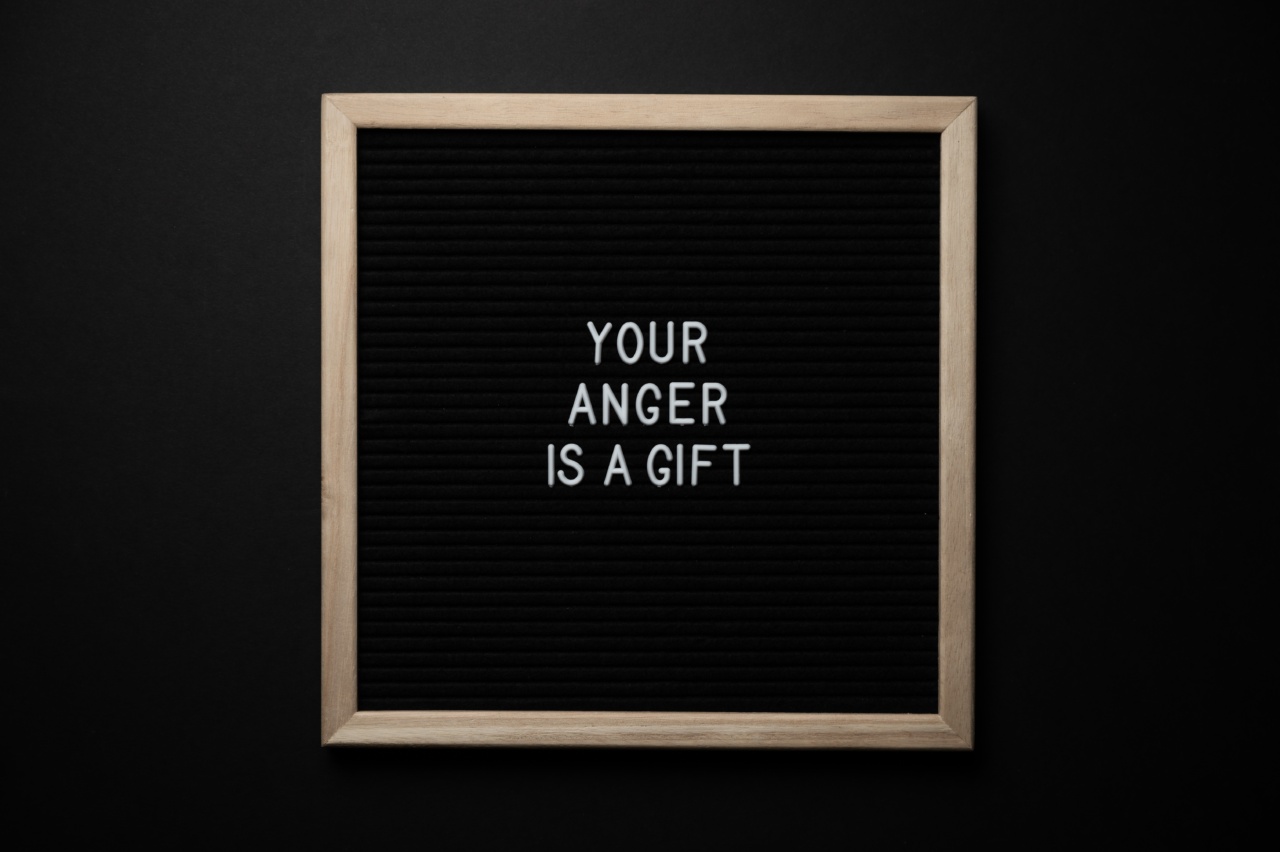In today’s fast-paced world, stress and anger have become a common part of many individuals’ lives.
From work-related pressures to personal frustrations, these negative emotions can have a detrimental impact on various aspects of our wellbeing. One significant area that anger affects is the quality of our sleep, as experts caution.
The Link between Anger and Sleep
Research has established a clear link between anger and sleep disturbances. When we experience anger, our bodies undergo physiological changes that can interfere with our ability to fall asleep and stay asleep throughout the night.
One of the primary consequences of anger is an increase in blood pressure and heart rate. These elevated levels of physiological arousal make it difficult for the body to relax and enter a restful state.
The release of stress hormones, such as cortisol, also contributes to this heightened state of alertness.
Furthermore, anger often leads to racing thoughts, rumination, and an overactive mind. Instead of being able to quiet the mind and drift off to sleep, individuals who are angry find themselves replaying events or imagining confrontations in their heads.
This mental activity can be extremely disruptive to the sleep process.
The Impact on Sleep Quality
When anger interferes with our ability to sleep, it can lead to a range of negative consequences for our overall sleep quality. Some of the common effects include:.
1. Insomnia
Individuals who experience anger often struggle with insomnia. They may find it difficult to fall asleep, wake up frequently during the night, or wake up too early in the morning and struggle to go back to sleep.
2. Fragmented Sleep
Anger can interrupt the natural sleep cycle, leading to fragmented sleep patterns. Instead of experiencing continuous phases of deep sleep, individuals may find themselves waking up frequently without reaching the restorative stages of sleep.
3. Poor Sleep Efficiency
Due to the inability to fall asleep or frequent awakenings, individuals who are angry often have low sleep efficiency. Sleep efficiency measures the ratio of time spent asleep to the total time spent in bed.
Low sleep efficiency indicates that a significant portion of time in bed is spent awake rather than asleep.
4. Reduced REM Sleep
Rapid Eye Movement (REM) sleep is the stage of sleep associated with dreaming and memory consolidation.
Anger can significantly reduce the amount of REM sleep a person gets, which can impact cognitive function, emotional regulation, and memory formation.
5. Daytime Fatigue
The poor quality of sleep caused by anger can result in excessive daytime sleepiness and fatigue. This can make it challenging to stay focused, attentive, and alert throughout the day, leading to decreased productivity and increased risk of accidents.
Strategies to Manage Anger for Better Sleep
If you struggle with anger and find that it is negatively impacting your sleep, there are several strategies you can use to manage and reduce your anger:.
1. Identify Triggers
Start by identifying the sources or triggers of your anger. This can help you better understand what sets off your anger and allow you to take proactive steps to avoid or manage those triggers.
2. Practice Relaxation Techniques
Engage in relaxation techniques like deep breathing exercises, guided imagery, progressive muscle relaxation, or meditation to help calm your mind and body before bed.
These techniques can promote a sense of calm and relaxation, making it easier to fall asleep.
3. Establish a Bedtime Routine
Create a consistent bedtime routine that signals to your body and mind that it is time to wind down and prepare for sleep. This routine may involve activities like reading a book, taking a warm bath, or practicing a soothing skincare routine.
4. Engage in Physical Activity
Regular exercise can help reduce anger by releasing endorphins and promoting relaxation. Engage in moderate-intensity physical activity, such as walking, jogging, or yoga, during the day to help manage your anger and improve sleep quality.
5. Seek Support
If anger is significantly impacting your daily life and sleep, consider seeking support from a mental health professional.
Therapists can help you develop coping mechanisms, manage anger triggers, and provide a safe space to express and process your emotions.
The Importance of Addressing Anger for Restful Sleep
Addressing and managing anger is crucial for ensuring restful sleep and overall well-being. Chronic anger and sleep disturbances, if left unaddressed, can contribute to the development of mental health disorders such as anxiety and depression.
A lack of quality sleep can also impair cognitive function, memory, and mood regulation, leading to decreased productivity, difficulty concentrating, and emotional instability.
It can even weaken the immune system, making individuals more susceptible to illnesses and diseases.
By actively working on anger management and prioritizing sleep, individuals can improve their overall quality of life and well-being.
Better sleep contributes to better physical, mental, and emotional health, enabling individuals to lead more fulfilling and balanced lives.































